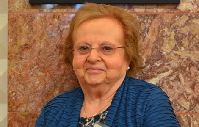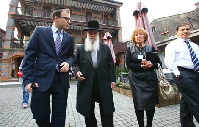Friends and enemies
Luckily, before he was transported to the frontline in the Battle of Triangle Hill, the Panmunjom truce agreement was inked, bringing an end to the fighting.
He came back home and from 1954 he started working as an army messenger. Aged 19, he started teaching himself reading, writing and arithmetic. His intelligence and hard work won him the love of He Lianzhen, a village head's daughter. She became his wife, bearing him four daughters, and they are still together.
Now 75 years old, she reflected with satisfaction on her choice of husband: "He is a thoughtful husband and a responsible father. We have never quarreled since our marriage in 1955. What more could I hope for?"
On leaving the army, Long became a policeman in a labor camp for surrendered Kuomintang military officials, whose ranks ranged from regimental commander to army commander. His experiences there, like all those that went before and came later, have shaped his view of Chinese politics.
He is convinced that Maoism is the ultimate solution to many of China's problems today, while Deng Xiaoping's flexibility and open-mindedness are also important.
He often recalls his experiences in the labor camp, and one conversation in particular stands out.
"One Kuomintang army commander used to ask me, greatly puzzled, how the illiterate could become leaders in the army, while only those with an education could become military leaders in the Kuomintang. I replied that the times have changed; the people are now the owners of the nation."
Recalling this story from so long ago, Long pondered its meaning, lost in contemplation.
Returning to the conversation, he said the story has resonances for today: "The Kuomintang army commander's question actually has practical implications for modern China, where so many officials have become corrupted. They are not lacking in knowledge, but they don't have a faithful belief in Maoism."
Huo Yan contributed to this story.


















